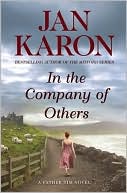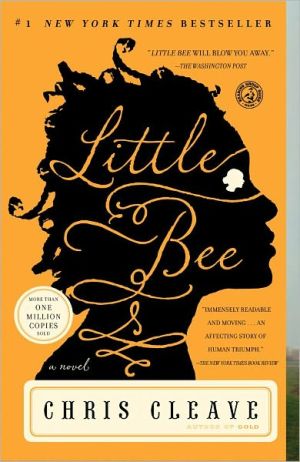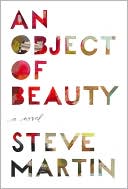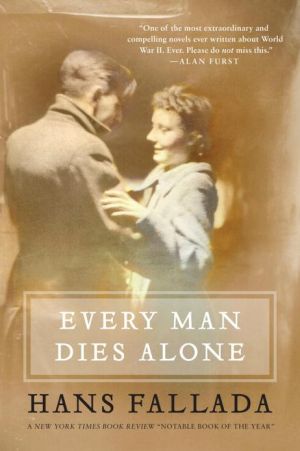The Last Promise
From the New York Times bestselling author and one of the world's most beloved storytellers comes a rich and all-too-human novel about the tragedy and triumph of love...\ Years ago, a sweet girl from Utah was swept off her feet by a handsome Italian. Today, the sweet girl from Utah is a wife and mother living in Italy. And she's about to be swept off her feet all over again...
Search in google:
Richard Paul Evans is one of the world's most beloved storytellers. Here, in his latest novel, he tells a love story about facing the greatest decision of all...choosing between the love for a child and romantic love. When Eliana, still called Ellen by her close friends back in America, moved to Italy the future was bright with promise. Tuscany held magic in its sprawling vineyards, great food, and centuries of art. It was a life of the senses, perfect for a blossoming, talented young artist such as Eliana. Her family and friends back home all thought she had made the right choice in following her heart, and the man she fell in love with and married, back to his native country. In America, Eliana's story was that of a fairy tale. But in Italy, in the small, rustic village nestled in the Chianti countryside, Eliana found her husband to be a very different man. Over time he distances himself from her, leaving Eliana to care for their young son, struggling with the asthma that threatens to take his life. Although she longs for the romance she'd known in America, Eliana is happy as a mother and with the time she spends with her child; yet when fellow American Ross Story, a deeply thoughtful man with a mysterious passion for art, arrives at the same villa, a chance encounter causes Eliana and Ross to look at their lives anew. And with their discovery that individuals may change and grow, they can never forget that the bonds of family last forever. In The Last Promise Richard Paul Evans spins a passionate, bittersweet tale about the fantastic joy and great sorrow life can throw our way. Rich and complex as a vintage Chianti wine, The Last Promise is in the end an uplifting, all-too-human tale about the magnificent power of true love.Publishers WeeklyThe Tuscan setting of this new novel by the bestselling author of The Christmas Box is as beguiling as its heroine. Ellen, now called Eliana, has been living in Italy for several years. She's a talented artist in her 30s, originally from a small town in Utah. She came to Italy to study art and soon met and married Maurizio Fernini, the head of a large family agricultural enterprise. What seemed like a fairy tale quickly soured-Maurizio now spends much of his time traveling and philandering, leaving her to care for their severely asthmatic son, Alessio. Eliana knows that in her adopted country she's expected to shrug philosophically at her husband's cheating, but she remains furious and desperately lonely, and even considers illegally fleeing back to America with Alessio. Then she meets American Ross Story, an art lover and tour guide who knows everything about everything in the Uffizi Gallery. Eliana asks Ross to sit for a portrait, and soon she's not nearly as lonely as she used to be. But as the two fall for each other, she faces a tormenting choice between romantic love and her love for her son. Evans paces his story skillfully and plays up the Tuscan landscape to maximum effect. His literary devices can be a bit stale (the first paragraph of the book's first chapter has Eliana studying her reflection in a mirror), but he does offer a gender-bending twist on the age-old story of romance between artist and subject. Those who enjoyed The Christmas Box are in for another treat. Copyright 2002 Cahners Business Information.
CHAPTER 1\ "Ogni cuore ha il suo segreto."\ Every heart has its secret.\ -Italian Proverb\ TWO YEARS EARLIER. JULY 1999.\ TUSCANY, ITALY.\ Eliana released the clasp on the cedar shutters, then unlatched one side of the wood-framed window and pushed it open, welcoming a rush of fresh air into her second-story painting studio. In the window's thick glass she saw her own pale reflection. Her umber hair, still unwashed, was pulled back and bound with elastic. Her usually beautiful eyes were puffy from another hard night. There are more beautiful things to see in Tuscany at six in the morning, she thought.\ From between the two large cypress trees that flanked the window, she could see the neatly lined trellises of the Chianti vineyards, faded in the distance by a morning mist. Sembra una cartolina, she thought. Just like a postcard. She had thought the same thing when she arrived in Tuscany almost six years earlier, only then her thoughts had been in English. In spite of her hardships, the country had not lost its beauty to her. She was grateful for this. It was one of the joys life had not stolen from her.\ As difficult as the previous night had been, she was ready to start again. She had learned to live this way, discarding the past each night and starting each day anew-picking joy where she could find it-like hunting for mushrooms in the Chianti forests. Sometimes her own endurance astonished her.\ The fifteenth-century villa where she lived was two-storied and horseshoe shaped, enclosed with a front wall, forming a sizable courtyard. Her family's apartment was the largest in the villa and took the entire east wing. While she was a new bride still living in America, her groom, Maurizio, had told her that their apartment in Italy was part of the new section of the restored villa. It was only after she arrived in Italy, three years later, that she realized that "new" is relative in an old country: the "new wing" was only two hundred and seventy years old.\ The villa's center apartment was smaller than Eliana's by half and was occupied by her sister-in-law, Anna, who had lived in the villa since her husband left her five years previous. The western wing of the villa was used for storage and there was also a small apartment there that was rented out. An arched, wrought iron gate in the center of that wing led to the villa's garden.\ The other buildings on the property were nearly a quarter mile away, surrounded by vineyards: a small, stucco home where Luca, the winery manager, and his wife lived, next to the three-story, ochre cantina where the grapes were processed into wine, aged, bottled and shipped.\ Eliana's painting studio was rectangular in shape, with white stucco walls that slanted slightly in toward the center of the house. It had a high, vaulted ceiling supported by heavy, wooden trusses that had been hewn by an axe. The room was on the second floor at the end of the hallway and the only room in the villa where one could see both the inner courtyard and the world outside the villa, depending on which side of the room one stood in. The space was larger than Eliana needed and she had only moved into one half of the room, piling the other half with blank canvases and unframed paintings.\ Eliana had wondered if the room was haunted. The first few weeks after she had moved in, she came in each morning to find six of the seven paintings she had hung on the walls tipped to their sides. Each day she checked the paintings' hooks and wires then righted them, only to find them all tilted again the next morning. All of the pictures except for one.\ "All villas in Italy have fantasmi," an old man wearing a bloodstained apron in the butcher shop had told her. Actually the phenomenon was little more than a curiosity to Eliana, and after two weeks, when it stopped, she was disappointed. Fantasmi or not, she liked the idea that she wasn't alone. Against the far wall of Eliana's studio was a gray, cast iron stufa that she used to heat the room in the late fall and winter months when the thick outer walls of the villa turned cold with the season. Above the stove was the only picture in the room not of her own hand, the one her ghost had left alone-a portrait of the Holy Blessed Mother, her hands lifted in adoration, her heart revealed. It hung above an icon where Eliana kept her rosary beads and a score of stout candles in shallow glass dishes. She was a devout Catholic, though it had been some while since she had attended mass. This was not by choice. Her six-year-old son, Alessio, was severely asthmatic, and the priest at the small church near the villa used copious amounts of incense in his worship, which was too much an irritant for her son's lungs, setting off an asthma attack almost immediately upon their entering the chapel. As much as she craved to worship in the company of others, it was unthinkable for her to ask the priest to desist, for it was an old church, an old priest and an old congregation, and nowhere is tradition and religion so interwoven as in the Italian countryside. She had tried other churches in the area and found them all to be the same, their chapels reeking from centuries of incense even without lighting new.\ She attended church only when her husband was in town, which was rare on weekends, so Eliana mostly worshipped in solitude, pausing before the picture in her studio each morning, crossing herself, then lighting a candle to carry her petitions heavenward. She had many. The Holy Mother was the patron saint of mothers. She would know Eliana's heart. More than anyone else, the mother of Christ would understand; for she had suffered what Eliana feared most-losing her son.\ Alessio had manifested the first signs of his asthma at the age of two, just thirteen weeks after their coming to Italy. One summer evening as she was putting him to bed, he suddenly began gasping for breath. It would have been a frightening moment for any mother, but Maurizio was out of town on business when it happened, leaving Eliana alone in a foreign country where she didn't know who to call or where to go in an emergency, even if she could speak the language. It was the most terrifying moment of her life. Not knowing what else to do, she prayed for help. Almost immediately there was a knock at the door. Anna and her husband had decided to stop by for a visit. They rushed Alessio and Eliana to the hospital.\ It was the beginning of a new life. Every year since, Alessio had suffered from attacks severe enough to send them running to the nearest emergency room.\ After she finished her daily rite, Eliana would go to the kitchen to make herself a cup of hot ginger tea which she brought back to the small round table next to her easel. Then she would turn on her music. On the counter behind her easel were a CD player and a wooden case that contained CDs by mostly Italian artists-Pavarotti, Bocelli, Battisti, Zucchero-her collection diversified with a few country-westerns, Garth Brooks, Reba McEntire, Clint Black, an album of Gregorian chants and a Barbra Streisand album that now seemed to her a thousand years old.\ This morning she chose Pavarotti, inserted the disk and turned on her stereo. The music started too loudly and she quickly turned it down. Just two doors away from her, Alessio was still asleep. With any luck he would remain so.\ The two of them were alone in the house. Maurizio was away on business. As usual. He had called sometime during the night, woken her, to say he'd been delayed. He'd be home Saturday or Sunday, she didn't remember. She didn't care that much anymore. She wondered why he'd bothered to call. He hadn't thought to ask how Alessio was or why her voice was so hoarse. He didn't know that she'd been up half the night as their son struggled to breathe.\ After he was breathing regularly and had gone back to sleep, she lay on the couch next to him listening for each breath and quietly crying until sleep silenced her. As distant as she and Maurizio had grown in the last seven years, in spite of all his lies and infidelities, she had wanted him then. She wanted him to hold her. For just ten minutes she wanted to be weak.\ She put on her painting smock, then sat down on her leather-covered stool, unscrewed the lid of a tube of white oil paint and squeezed a large circle of it onto her palette. Italian girls dream of marriage. Italian wives dream of love, an elderly Italian woman had once told her. What, then, do American women who marry Italian men dream of? She could speak only for herself. She dreamt of home. Home in a small town no one in Italy had even heard of. Vernal, Utah. Back where they still called her Ellen and where her mother still fretted over her raspberry bushes all year long, then spent days putting up bottles of jam in wide-mouthed Kerr bottles just to give them away to her neighbors.\ After six years in Italy it was sometimes hard for her to believe that such a place as Vernal still existed-a pinprick on a map in a different world. By comparison the Florence countryside made Vernal look as drab as a lunar landscape. But, be it ever so humble, it was still home. And better a warm cottage than a cold castello.\ Eliana's friends in Vernal still spoke of her fairytale life-the hometown girl who made good, swept off her feet by an Italian lover and taken to a beautiful foreign land, where the language was spoken like poetry and the food was their daily sacrament. A land where immortals like Michelangelo, Brunelleschi and Botticelli had gilded the lily of a country God Himself had already painted. She understood their fantasies, clichés and all, as the fantasies had also once been hers.\ Back in Vernal they didn't know how things had changed: how her "lover" was usually away from home six days out of seven; the lonely times she called her husband on the road only to have the phone answered by some strange woman, followed by a covered mouthpiece and muffled talking. They didn't know about the days and nights of solitude spent caring for her son, Alessio. She was the lucky one, they still said of her, the one that got out. -\ She cut back a line of cadmium red from the canvas with a palette knife. The painting that she worked on this morning was from a photograph she had taken outside rural Siena, a landscape of a stone farmstead, the hills behind it stitched with grape trellises like a great, rolling quilt, fading off into the distance as if already feathered with a brush.\ During her first three years in Italy, Eliana and Alessio flew back to Utah to spend Christmas with her mother. But Alessio's worsening condition had made it too difficult to make the twenty-six-hour plane journey there and back. The last time they had tried to make the trip, flying from Da Vinci Airport in Rome, the airplane had been delayed by traffic and waited on the airstrip for forty minutes. The fumes of the other jets affected the cabin's air and a half hour after takeoff Alessio suffered a severe asthma attack. Eliana, with the assistance of the flight attendants, had administered his inhalers, followed by oxygen, but he continued to struggle for breath. A doctor was found on board, and she rummaged through the jet's first aid kit, found a vial of epinephrine which she shot directly into Alessio's arm. It was only margin- ally effective, only enough to buy time, and the jet was forced to dump fuel and return to Rome, where an ambulance met them on the airstrip.\ As traumatic as the experience had been, more frightening was the realization that had the attack come just an hour later, Alessio likely would have died before they could make it back to ground. She hadn't flown with him since.\ Neither could she leave Alessio at home alone with her husband. She wouldn't dare, even if Maurizio had been willing to watch him-which he wasn't. Her husband had no idea how to take care of his own son's basic needs, let alone his medical ones. It wasn't something men in Italy did, he told her. E' un lavoro da donne. It is woman's work.\ Maurizio hadn't always been that way. While they were courting in America, he helped out, doing dishes, vacuuming and even proving himself the better cook of the two of them. But within their first month back in Italy all that changed. None of his friends' wives expected their husbands' help in "domestic" matters, especially with children, and "neither should she," he said. More than that, she should learn to serve him as his friends' wives served their husbands.\ She only blamed herself for not seeing it coming. Maurizio's mother, Antonella, had slaved over him his entire life, from ironing his underwear to laying out his clothes every morning, up to the day he was married. She clearly felt that Eliana wasn't doing her part as the dutiful wife and would demonstrate to her whenever she was in their home exactly how she should be taking care of her son and grandson-taking over like a veteran pilot pulling the wheel from a trainee.\ Once, while Eliana was still fresh in Italy and newly pregnant with their second child (she miscarried in the third month), Antonella had demonstrated to her how Maurizio liked his socks ironed, emphasizing the length of time the iron should be pressed. Eliana had watched incredulously. She wanted to say You've got to be kidding. Antonella wasn't. Maurizio's expectations were not all his fault, Eliana decided. He had been well trained to accept servitude. Something had to give with these Italian women.\ A few years earlier, at Eliana's insistence, she and Maurizio had gone to see a marriage counselor. The counselor, an older Italian man, nodded as she spoke of her frustration. Yes, he saw the problem. It was her. "You are no longer in America," he said. "As difficult as it may seem, you need to accept a new life and a new culture." He even suggested that only Italian should be spoken in the home. No more English. Eliana was stunned. "Forget that it's English, this is my language."\ "What do you mean?"\ She said, "This is my language. This is who I am."\ "Who you were," he corrected. "You must quit clinging to the past in order to transcend it. You must accept a new life. You owe this to your family."\ She cried as they left the session. Accept a new life? To what point? When she said "I do," this wasn't the deal she had bought into. Nor was this the man. The man she had married was romantic and caring. She felt like a victim of marital bait and switch.\ Maurizio claimed the same of her. "You used to be much more fun," he once complained, "more spontànea. You've changed."\ She had changed. She was a mother now. Parenthood is a fork in the road. It requires sacrifices and responsibility. Eliana didn't make it that way-it's just the way it is. It was a crucial point in their relationship. They could either grow up together or they could grow apart. For them the latter was true. Sometimes she felt as if Maurizio blamed her for the changes a child brought into their lives-especially one with special needs. She feared that on some level Maurizio resented Alessio as well and this was why he spent so little time with him. With them.\ -\ As school was out for the summer, Eliana's life revolved around Alessio even more now. Still, she never thought of him as a burden-only as her boy. A little boy with a big heart who sensed her sadness and solitude and tried to be the man in her life. She didn't know what she would do if something ever happened to him.\ Nor did she allow her thoughts to linger on the possibility. It was far too real. There had been too many close calls in the past four years. Too many white-knuckle, late night runs to the emergency room.\ She was weary of being strong and stoic, and, most of all, alone. She wanted a partner in life's journey. A man to share a glass of wine and then a bed with. Someone to make her feel worthy of love again. But, as hope can be the cruelest of tormenters, she learned to avoid such thoughts. For better or worse she was married. Married and lonely and locked away in her beautiful villa in the quiet Tuscan countryside twelve kilometers from Florence.\ — from The Last Promise by Richard Paul Evans, Copyright © November 2002, Dutton, a member of Penguin Putnam, Inc., used by permission.
\ Publishers WeeklyThe Tuscan setting of this new novel by the bestselling author of The Christmas Box is as beguiling as its heroine. Ellen, now called Eliana, has been living in Italy for several years. She's a talented artist in her 30s, originally from a small town in Utah. She came to Italy to study art and soon met and married Maurizio Fernini, the head of a large family agricultural enterprise. What seemed like a fairy tale quickly soured-Maurizio now spends much of his time traveling and philandering, leaving her to care for their severely asthmatic son, Alessio. Eliana knows that in her adopted country she's expected to shrug philosophically at her husband's cheating, but she remains furious and desperately lonely, and even considers illegally fleeing back to America with Alessio. Then she meets American Ross Story, an art lover and tour guide who knows everything about everything in the Uffizi Gallery. Eliana asks Ross to sit for a portrait, and soon she's not nearly as lonely as she used to be. But as the two fall for each other, she faces a tormenting choice between romantic love and her love for her son. Evans paces his story skillfully and plays up the Tuscan landscape to maximum effect. His literary devices can be a bit stale (the first paragraph of the book's first chapter has Eliana studying her reflection in a mirror), but he does offer a gender-bending twist on the age-old story of romance between artist and subject. Those who enjoyed The Christmas Box are in for another treat. Copyright 2002 Cahners Business Information.\ \ \ \ \ Library JournalEvans is billed by his publisher as a brand name, and you know the brand. An American wife in Italy, ignored by her Italian husband and caring for a sick child, risks bittersweet romance with the new man in town. Copyright 2002 Cahners Business Information.\ \ \ Kirkus ReviewsRichard Paul Evans teaches us how to love again. Perhaps figuring that not quite enough has been written about the bellissimo Italian countryside and the ability of two damaged individuals to find love in spite of all obstacles, author Evans (The Locket, 1998, etc.) presents the story of Ross and Eliana. Once called Ellen back in her small Utah town, Eliana is now the wife of Maurizio, the Italian who swept her off her feet before becoming a philandering pig, and the mother of sweet, asthmatic Alessio. Ross Story (yes, that's right) is an American with a Dark Secret who comes to the Chianti countryside after wandering Italy In Search of Himself. Once an ad exec back in Minneapolis, Ross now conducts tours of the Uffizi museum and lives next door to Eliana. She's trapped in her marriage-Maurizio won't divorce her and says that even if she leaves, the sexist Italian court system won't let her take Alessio with her-and Ross seems to have a lot on his mind too (though exactly what isn't revealed until dramatically necessary). A chaste flirtation between Ross and Eliana (helped along by the fact that Maurizio's stereotypical self is always out of town sleeping with other women) blossoms into a chaste romance, Maurizio's Passionate Mediterranean Soul burns with jealousy, every woman in the land swoons over the strong but sensitive Ross and the spirit of God is ever present over all the gentle goings-on. There are also enough Italian tips to stock a good pocket-sized phrasebook and some bottled art-history lessons that don't overly tax the brain (Ross is a tour guide, after all). One wonders why Evans bothered sending his American lovers-to-be all the way to Italy when they could have justfallen in love in the States, but no matter. Either way, this shameless wallow is just begging to be mocked.\ \








